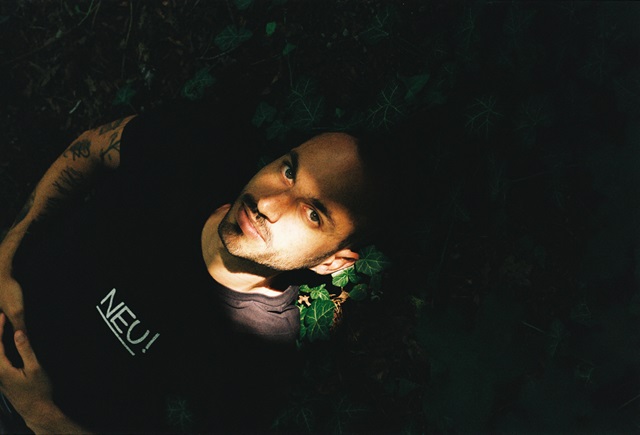
Classifying the ever-elusive musical duo, Thailand, may prove to be more difficult than the band intended. Sure, they are create some of the catchiest melodies of the year in very simplistic three-minute-song fashion, but their incorporation of several styles appear to be quite distinct and intuitive. The two components of Thailand, Marc Linquist and Staci Roark, both clearly have a fondness for the influential songwriters of the 70s who most of us will never tire of. This would include Bowie, Eno, and Roxy Music; that lovable sort. Mixing together such a 70s songcraft appears to be flawlessly integrative for the band’s sound, as they also provide great consideration for danceable hits of the 80s by incorporating a variety of synth sounds, whether it be atmospheric pads or fast-paced snippets. Synth-pop, rock, punk, and even blues are present styles, clumping Thailand into an enjoyably limited category of artists who have the capacity to involve several genres without the range causing a substantial clutter.
Though the band is based in Los Angeles, chief songwriter Marc Linquist was raised in Florida by his father, Allen Lynn, a solo lounge musician. After being schooled on the rights and wrongs of songwriting by his father and setting out on his own, he met fellow musician Staci Roark in Tennessee. The duo began to write songs together, moving to London and then to Kentucky, with their final bearings finally ending in Los Angeles. Regarding their namesake, it appears that the development process for Thailand has been slowly building up during the time that Linquist and Roark have worked together, taking in a variety of different environments as their songwriting’s characteristics have increased in quality and experience. Recalling that Bowie influence, Linquist has vocals that sound strikingly close to the ageless Mr. Stardust, giving Thailand’s sound an aggressive swagger with a touch of throwback glam. The resemblance can be heard on most of the band’s songs on their debut full-length, Motorcade, though songs like “Come On, Tiger” and “Bergerac” are so distinct that even the most dedicated of Bowie fans might mistake the voice for a second or so. Self-released by the band this year, Motorcade has proven to be quite the experience.

When I first listened to the first song on Motorcade, a sense of odd excitement overcame me. At the time, I was honestly not aware why. I mean, I had never even heard of the band before and I had too little information on them to even form a biased opinion. Distinctively, it was their mixture of different styles. Thailand clearly struck my weak point by making such irresistible songs that were reliant on devastating hooks built by layers of excellently implemented synths, convivial glam guitar, and a set of vocals that would make fans of Bowie, Bryan Ferry, and Lawrence Hayward squirm with delight. One of the album’s most successful songs, “Ocean of Fire”, will likely draw comparisons to bands like Interpol, though both Interpol and Thailand are borrowing the same influences, making contemporary comparisons quite obsolete. With a thick fade-in introduction that recalls Felt and The Chameleons UK, some high-pitched synths eventually weave their way into this stylistic song, one that eventually explodes into an emotional burst of instrumentation as Linquist further shows his fittingly stylistic vocal murmurs.
The majority of the songs on Motorcade are dominated by successive guitar riffs and synths, with a driving bass line and rhythm section buried under the chaotic layers of melodically dominant tracks. As far as the synths and guitars go, the incorporation is split down the middle, with both instrumental aspects playing a vital and unique role. With most tracks, the band introduces a guitar riff or two which is later accompanied by stellar synth. A rare exception is one of the better tracks on the album, “Valley Vista”. Kicked off by a soothing synth pad, a boisterous succession of guitars enter the picture shortly thereafter. True, it may sound like Interpol with synths to most listeners though more educated comparisons should go to artists like Roxy Music and Bowie, who developed such a taste before the enduring NYC post-punkers were even born. “Don’t come over ’til you’re overjoyed,” Linquist deeply mumbles over the dominantly catchy gem, “don’t give me none of that angry noise.” Indeed, “angry noise” is an accurate way to describe most music these days, though Thailand can only grin at the fact. Linquist and Roark seem content and at home in their own stylistic world of synths and guitars. They should too, as Motorcade is a remarkably enjoyable album; one of the most fulfilling debuts of the year.
——————————————————————————————
[audio:https://obscuresound.com/mp3/thai-oce.mp3]——————————————————————————————
[audio:https://obscuresound.com/mp3/thai-val.mp3]——————————————————————————————
[audio:https://obscuresound.com/mp3/thai-com.mp3]——————————————————————————————





